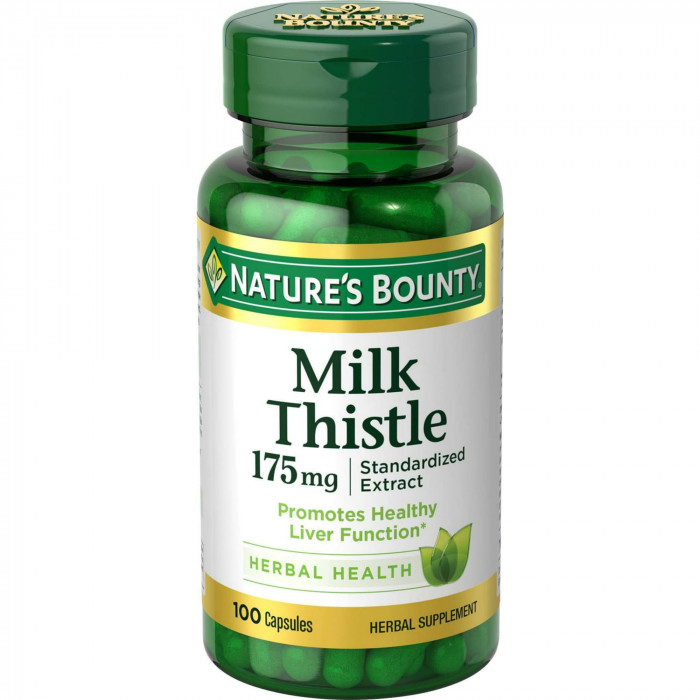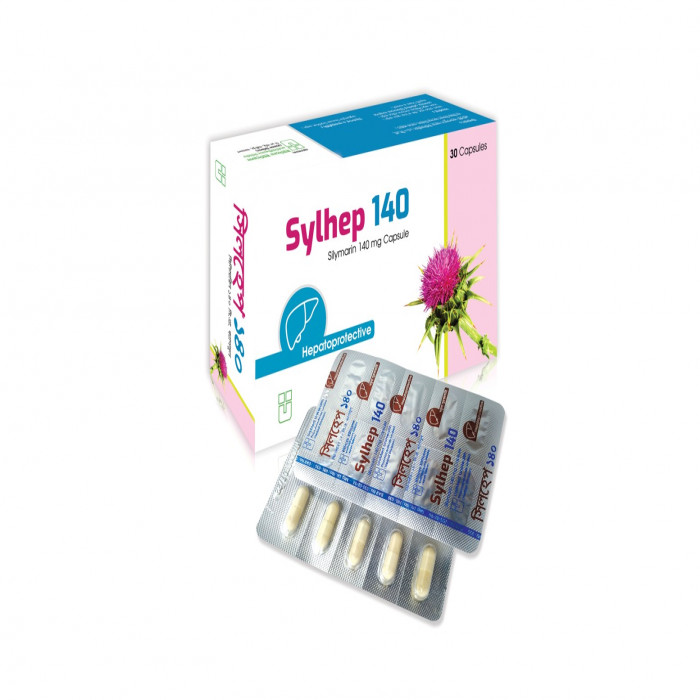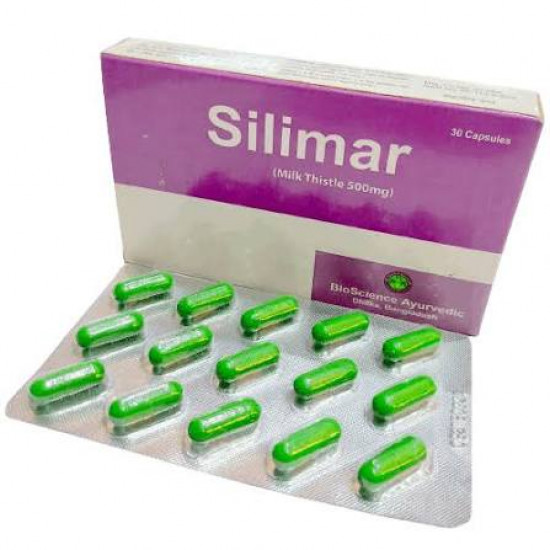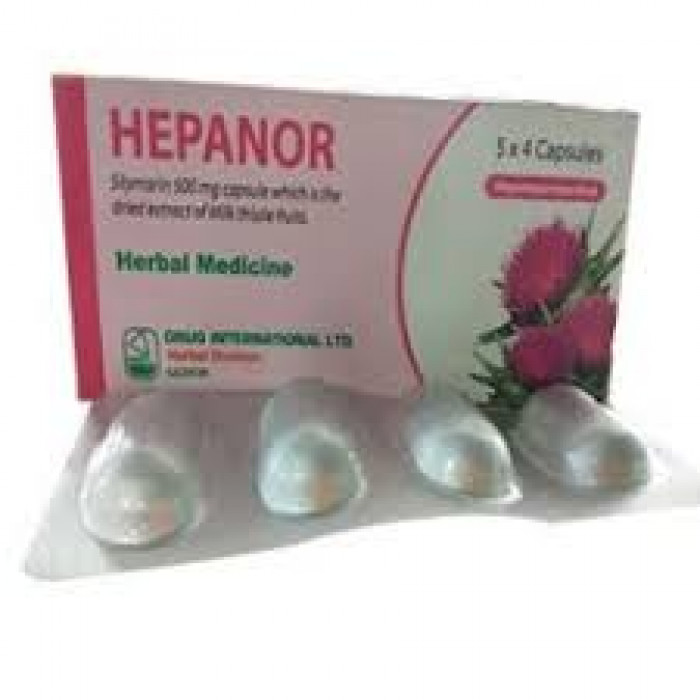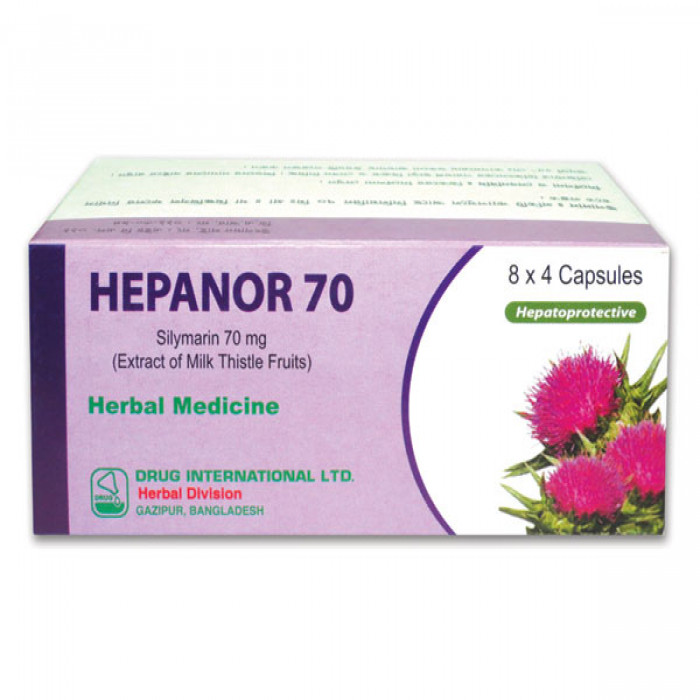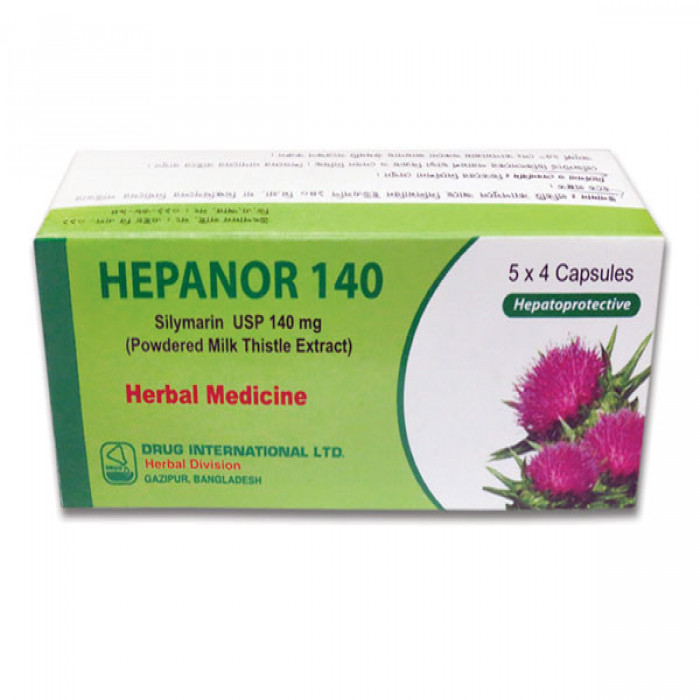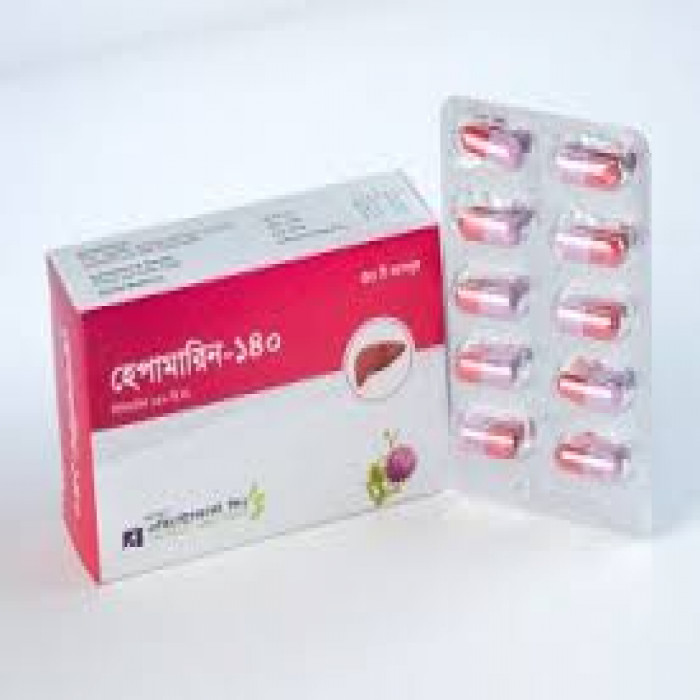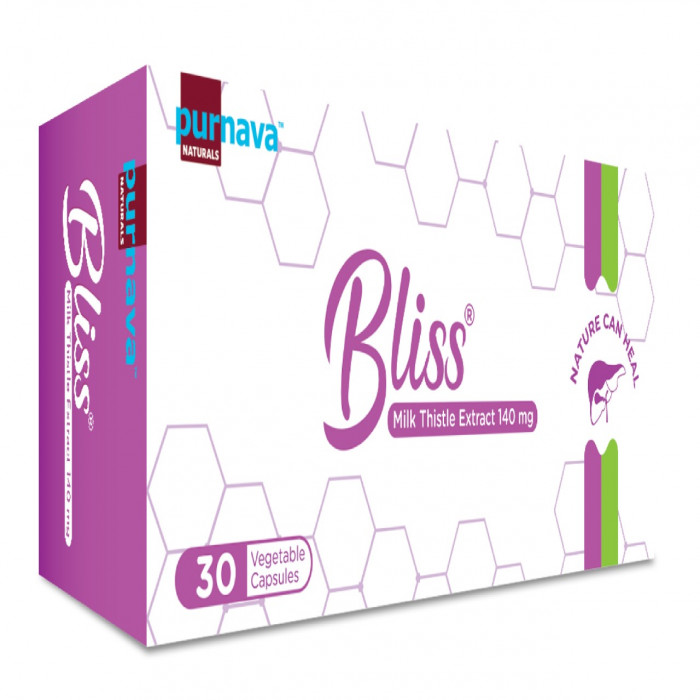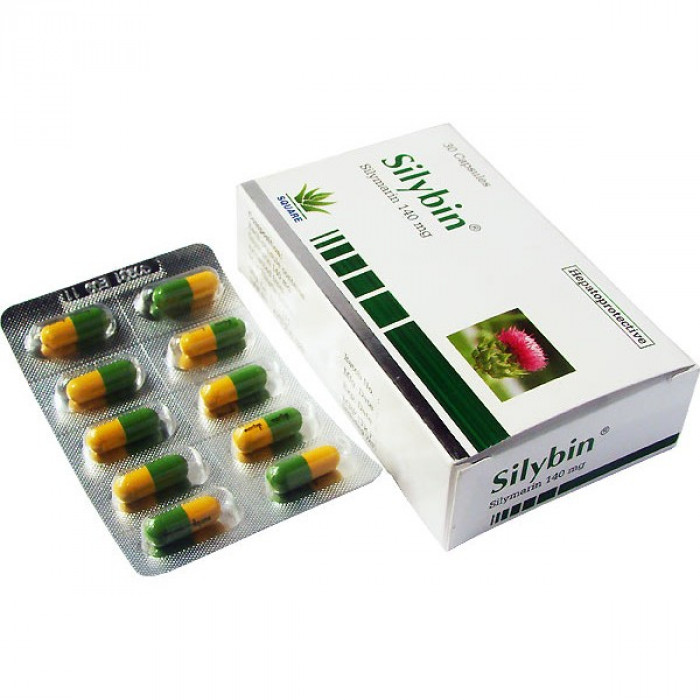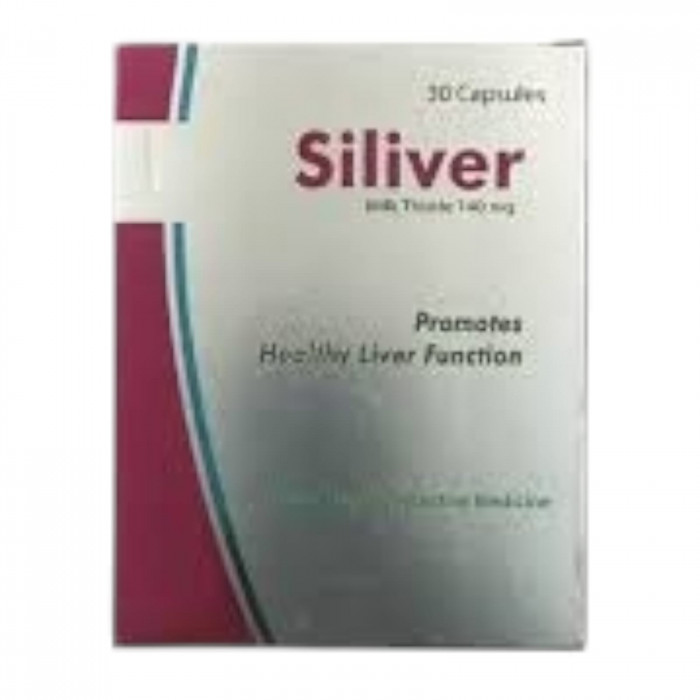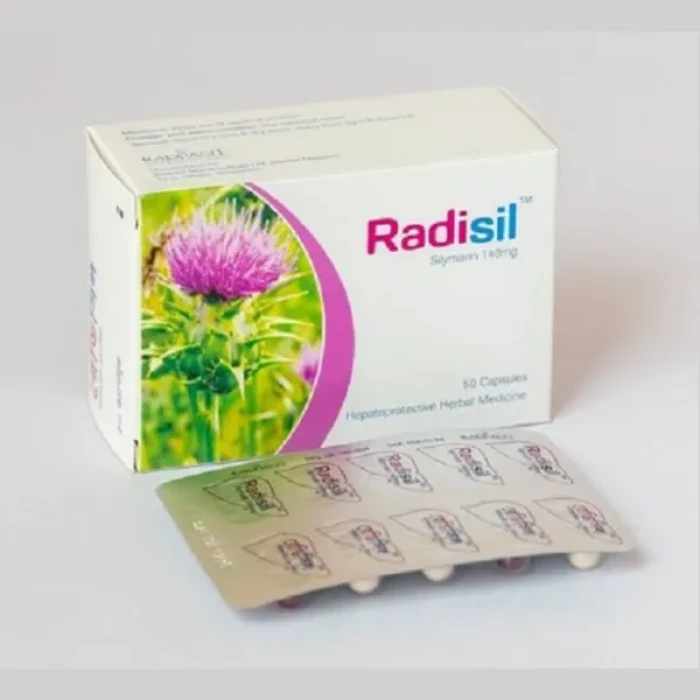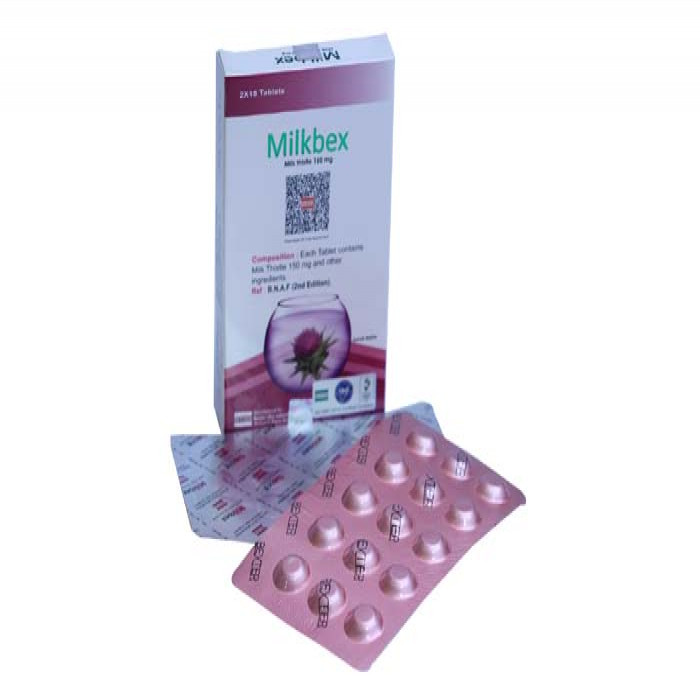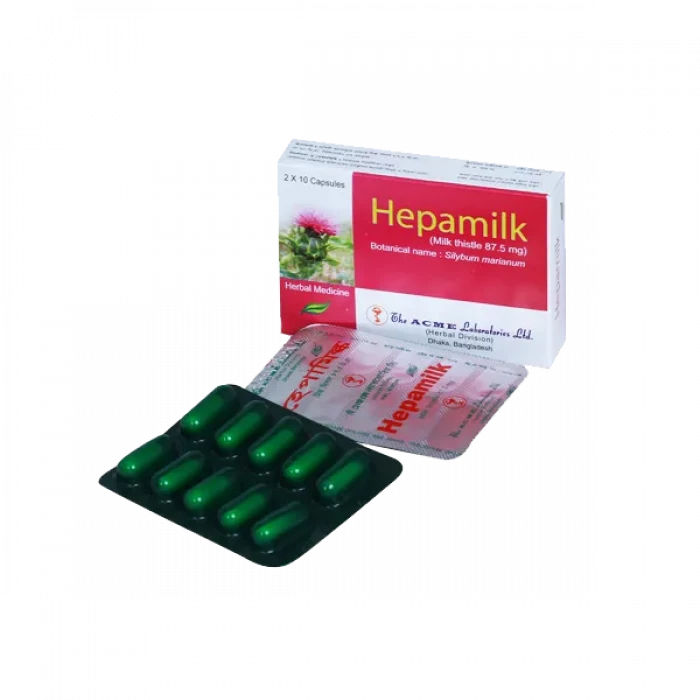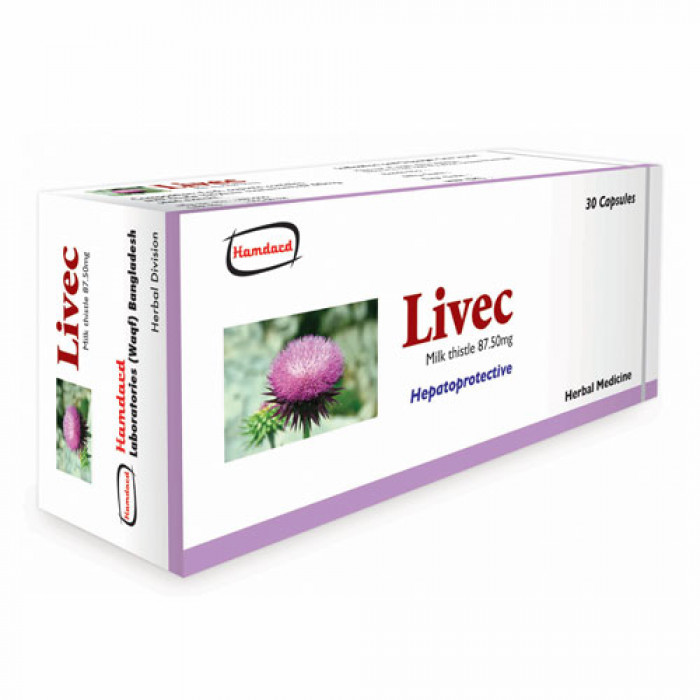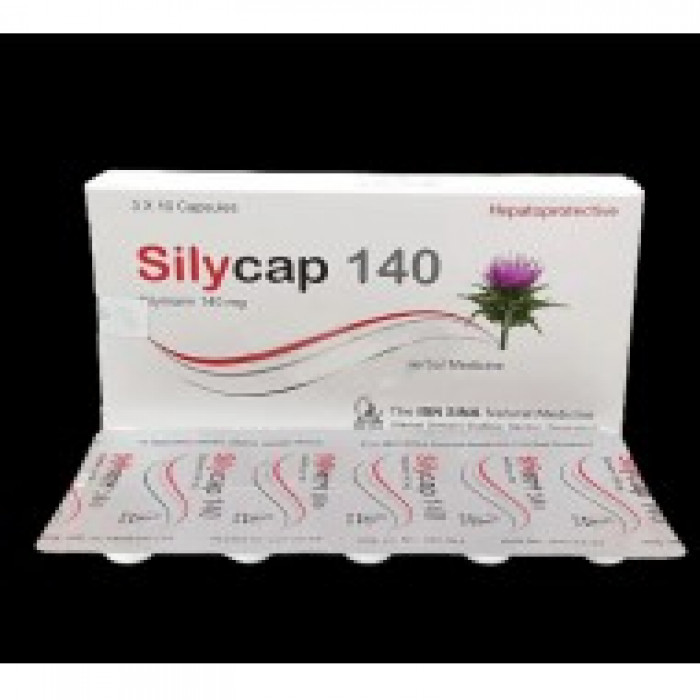
✔ 100% Authentic Product
👁️ Currently Viewing 2717
Silycap 140mg Capsule 30pcs Box
Silycap (Milk thistle) is indicated for the treatment and prevention of various liver conditions, including:
- Liver disease (both non-alcoholic & alcoholic)
- Liver cirrhosis (both non-alcoholic & alcoholic)
- Infectious hepatitis
- Drug-induced hepatitis
- Liver disease secondary to diabetes mellitus
- Toxicity of narcotics
- Fatty liver
- Jaundice
Discount
Price: ৳ 171
MRP:
৳
180
5%
Off

100% Genuine Products, Guaranteed

Safe & Secure Payments, Always

Fast, Secure & Efficient Delivery

Proper Packaging
 Cash on Delivery - All over Bangladesh
Cash on Delivery - All over Bangladesh Regular Delivery - 12-24 Hours, Dhaka City* Charge Tk.39-59
Regular Delivery - 12-24 Hours, Dhaka City* Charge Tk.39-59 Regular Delivery - 24-48 Hours, Other Cities* Charge Tk.99-110
Regular Delivery - 24-48 Hours, Other Cities* Charge Tk.99-110
🌙 রমযান অফার 🌙
 ফ্রি ডেলিভারিঃ - ৭৯৯ টাকা+ অর্ডারে, ঢাকা
শহরে
ফ্রি ডেলিভারিঃ - ৭৯৯ টাকা+ অর্ডারে, ঢাকা
শহরে ফ্রি ডেলিভারিঃ - ২৭৯৯ টাকা+ অর্ডারে, ঢাকার
বাহিরে
ফ্রি ডেলিভারিঃ - ২৭৯৯ টাকা+ অর্ডারে, ঢাকার
বাহিরে
📲 মোবাইল অ্যাপ অর্ডারে সাশ্রয় বেশী
-
Google Play Store থেকে ডাউনলোড
-
Apple Store থেকে ডাউনলোড
100% Genuine Products, Guaranteed
Safe & Secure Payments, Always
Fast, Secure & Efficient Delivery
Proper Packaging
 Cash on Delivery - All over Bangladesh
Cash on Delivery - All over Bangladesh Regular Delivery - 12-24 Hours, Dhaka City* Charge Tk.39-59
Regular Delivery - 12-24 Hours, Dhaka City* Charge Tk.39-59 Regular Delivery - 24-48 Hours, Other Cities* Charge Tk.99-110
Regular Delivery - 24-48 Hours, Other Cities* Charge Tk.99-110 ফ্রি ডেলিভারিঃ - ৭৯৯ টাকা+ অর্ডারে, ঢাকা
শহরে
ফ্রি ডেলিভারিঃ - ৭৯৯ টাকা+ অর্ডারে, ঢাকা
শহরে ফ্রি ডেলিভারিঃ - ২৭৯৯ টাকা+ অর্ডারে, ঢাকার
বাহিরে
ফ্রি ডেলিভারিঃ - ২৭৯৯ টাকা+ অর্ডারে, ঢাকার
বাহিরে- Google Play Store থেকে ডাউনলোড
- Apple Store থেকে ডাউনলোড
🌙 রমযান অফার 🌙
📲 মোবাইল অ্যাপ অর্ডারে সাশ্রয় বেশী
✅ Description:
The milk thistle, scientifically known as Silybum marianum (L.) Gaertn. (= Carduus marianus L.), belongs to the Asteraceae family (Fig. 1). This medicinal plant has a rich history dating back to the time of the birth of Christ. Its fruits, known as Fructus Cardui Mariae or seeds (Fig. 2), were traditionally used as an herbal remedy, and today they or their derivatives in effective dosages are recognized as therapeutic agents.
In 1968, Wagner et al. discovered a group of flavonoid compounds in the fruits of milk thistle, which were named silymarin. Further studies revealed that silymarin consists of three isomeric compounds: silibinin, silibinin, and silicristin, with a molecular formula of C25H22O10 and a molecular weight of 482.45 (Fig. 3).
The positive effects of silymarin on elevated serum enzyme levels, indicating parenchymal damage in patients with chronic liver diseases, have been evident in various nonblind controlled trials. Silymarin is indicated for toxic liver damage and supportive treatment in chronic inflammatory liver diseases and cirrhosis.
✔️ Composition:
Each capsule contains a standardized extract of Milk thistle:
- 175 mg equivalent to Silymarin 140 mg
- 87.50 mg equivalent to Silymarin 70 mg
✔️ Pharmacology:
Silymarin, derived from Milk thistle, is a well-known hepatoprotective agent. It stimulates RNA polymerase-A, enhances protein synthesis, and aids in the regeneration and repair of liver cells. Its antioxidant properties are potent, protecting liver cells from damage caused by various toxins, infections, drugs, and pollutants. Silymarin also exhibits anti-inflammatory, membrane-stabilizing, immunomodulatory, and liver-regenerating effects.
✔️ Dosage & Administration:
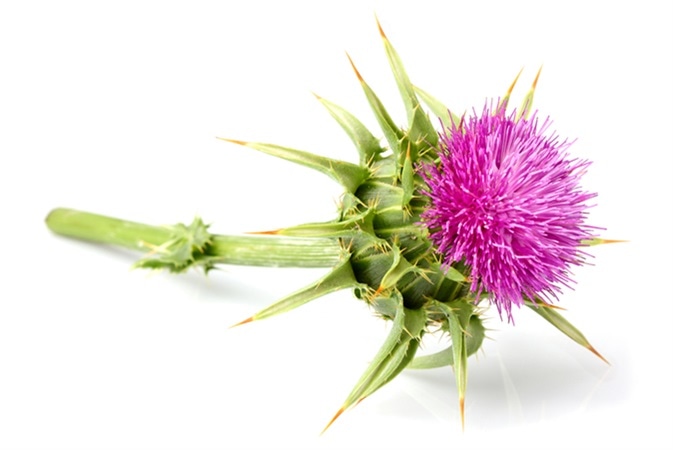
✔️ Interaction:
Concomitant use of Silycap with butyrophenones or phenothiazines may reduce lipid peroxidation.
✔️ Contraindications:
- Contraindicated in patients with known hypersensitivity to silymarin.
✔️ Side Effects:
Well tolerated in recommended doses. Occasionally, mild laxative effects may be observed.
✔️ Pregnancy & Lactation:
No sufficient data are available regarding the use of Silymarin during pregnancy and lactation. Caution is advised, and usage should be determined by a physician.
✔️ Storage Conditions:
Store in a cool, dry place, away from light and moisture. Keep out of reach of children.
⚠️Disclaimer:
At ePharma, we’re committed to providing accurate and accessible health information. However, all content is intended for informational purposes only and should not replace medical advice from a qualified physician. Please consult your healthcare provider for personalized guidance. We aim to support, not substitute, the doctor-patient relationship.




